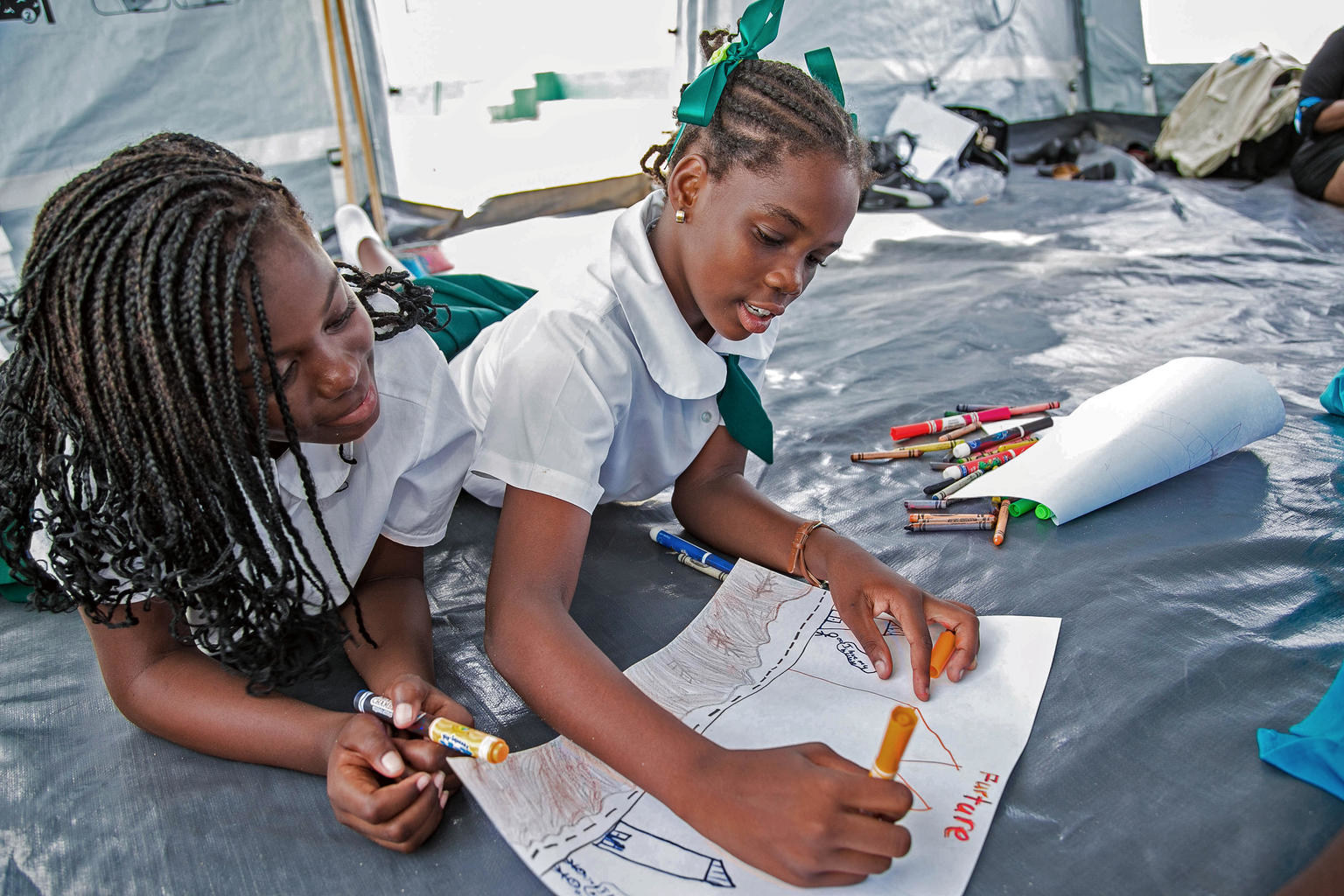
(UNICEF Canada, 12.Sep.2018) — A year after two category 5 hurricanes caused destruction across parts of the Caribbean, most children in the affected countries are now back in school and have access to the services they need, thanks to the efforts of UNICEF and partners.
In September 2017, hurricanes Irma and María caused catastrophic damage and severely impaired facilities and services, including schools, water systems and more, across several countries in the Eastern Caribbean, Cuba and Haiti, leaving at least 1.4 million people, including 357,000 children, in dire need of assistance. A year later, most of the affected children have returned to school, and resumed their access to services—including water and sanitation.
“Despite the fact that rebuilding and recovery are almost complete, vulnerable children in these countries remain our priority, responsibility and mandate,” stated Maria Cristina Perceval, UNICEF Regional Director for Latin America and the Caribbean. “In a region impacted by hurricanes and climate vulnerabilities, building resilience is not just an option, but a need, especially for vulnerable communities and even more so, children,” she added.
The extent of the hurricanes’ impact on several islands had initially made it extremely challenging for UNICEF and partners to reach children and families most in need.
However, thanks to the generous support of donors and partners, $11.6 million was raised in the aftermath of the hurricanes last year, which helped alleviate the impact on affected children and young people. Water and sanitation services were restored, children could go back to school as buildings were rebuilt and classrooms re-stocked, family-friendly safe spaces were set up that provided psychosocial support, and a cash assistance programme was set up for families in need.
Now, with the new hurricane season underway, the continuity of programmes that began during the emergency response last year remains crucial as efforts are made to reinforce the preparedness and social protection systems; to minimize the possible consequences of future catastrophes and the effects of climate vulnerabilities; and to promote resilience in the region.
As part of its response to build resilience amongst children and communities:
— In the Eastern Caribbean countries of Anguilla, Barbuda, British Virgin Islands, Dominica and the Turks and Caicos Islands, UNICEF will continue to support the implementation of the Caribbean Safe Schools Programme, and work with governments to strengthen social protection systems. Under this programme 25,000 children in five countries will be part of disaster risk reduction plans, which are aimed at making the region’s education sector more resilient to hurricanes and other natural disasters.
— In Haiti, where 126,000 children were affected, UNICEF has invested in cholera prevention initiatives in the most affected areas and will continue to support the sustainability of prevention and protection systems.
— In Cuba, where 176,000 children were affected, UNICEF is providing critical items to support the re-establishment of a protective learning environment for 53,261 girls and 54,879 boys in 14 prioritized municipalities. In addition, in support of efforts to rehabilitate education infrastructure, UNICEF procured 56,000 m2 of waterproof covers for 69 schools and kindergartens. UNICEF also reached a total of 560,315 people (274,554 women and girls) in the 14 prioritized municipalities with safe water treatment and storage.
About UNICEF
UNICEF has saved more children’s lives than any other humanitarian organization. We work tirelessly to help children and their families, doing whatever it takes to ensure children survive. We provide children with healthcare and immunization, clean water, nutrition and food security, education, emergency relief and more.
UNICEF is supported entirely by voluntary donations and helps children regardless of race, religion or politics. As part of the UN, we are active in over 190 countries – more than any other organization. Our determination and our reach are unparalleled. Because nowhere is too far to go to help a child survive. For more information about UNICEF, please visit www.unicef.ca. For updates, follow us on Twitter and Facebook or visit unicef.ca.